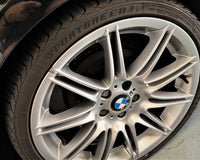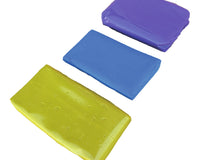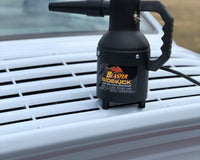While we have included below tested tips for car cleaning, this does not constitute medical advice.
Please visit the NHS website for the latest information on coronavirus (COVID-19). If you have to leave the house, you can reduce the risk of spreading coronavirus by regularly cleaning the inside of your car. To get the most out of your materials, we recommend you clean first, then disinfect.
Give your car a good scrub with soap and water or professional cleaning products, then wipe it down with disinfectants or products containing viricidal agents proven to kill flu viruses.
We recommend you check the chemicals used in these products to make sure you’re not damaging your car. You should also regularly wash your hands with soap and water, for at least 20 seconds, and/or use a hand sanitiser to reduce your risk of catching the virus. Where to clean It’s worth giving the whole car a good clean inside and out, but you should prioritise areas that are frequently touched.
These will include door handles, the gear stick, infotainment and dashboard controls, seats and armrests, seat belts and the handbrake. Perhaps most important is the steering wheel. One study found that the average steering wheel carried up to four times the number of germs as the average toilet seat. So, even outside of coronavirus concerns, cleaning your steering wheel is a good habit to get into.
As COVID-19 is a new illness, it is not fully clear how it spreads between people. However, similar viruses are known to spread through cough droplets (see NHS advice for more). With that in mind, we’d recommend you also take time to clean the carpets, mats and other surfaces if you’re concerned. You should definitely be doing this if you’re carrying vulnerable people in your vehicle or coming into contact with them.
How to clean your car
We appreciate there’s a shortage of disinfectant right now, so to get the most of yours we recommend that you clean, then disinfect. Car-specific cleaners are ideal, A good scrub can weaken the protective pocket the coronavirus sits in (that’s why you’re recommended to wash your hands).
Don’t use too much water – especially around electronics. Also, be aware that scrubbing too hard could remove dye or surface coatings, so take your time and work out how much pressure to apply to be thorough. A microfibre cloth should minimise potential for scratches.
What to use If you want a thorough clean:
Try and get cleaning materials specifically for: Fabrics, exterior metal and plastic, interior plastic, vinyl and leather When using cleaning products, it’s important to follow the guidance on manufacturer labels. These should tell you whether it’s safe to use on specific surfaces and materials. If they don’t, you could get in touch with the manufacturer and double-check.
They should also give you safety precautions, such as making sure the area you’re working in is well ventilated. Side note: if you’re going out to buy cleaning products, we ask that you think of others and don’t stockpile. You’d be surprised how much use you can get out of a bottle.
Cars have many different surfaces and use different materials, and these can vary based on the make and model. As such, you may need different products and methods of cleaning.
For example, leather can withstand more of light scrubbing because it tends to be covered in a clear coat or light vinyl. If you’re unsure of what to use, check the car manufacturer website or online forums. If you're struggling to find cleaning materials, look online for inspiration on how to create home-made alternatives.
Again, be careful with which chemicals you use and make sure you aren't going to risk damaging or discolouring your car. Popular solutions include using window cleaner for lights, windows and windshields or baking soda and warm water as a cleaning solution.
Disinfecting your car If you’ve got disinfectants, we recommend giving key areas, like the steering wheel, a wipe down after you’ve cleaned them. Alcohol-based disinfectants, Lysol wipes and similar are in very high demand right now, but if you clean your car properly, you won’t need to use as much. Top tip: if you are using a disinfectant on leather surfaces, like the wheel or seats, we recommend you use leather-care products (ideally one that contains moisturiser) to protect and maintain the leather.
Products to avoid
Bleach and peroxide-based cleaners can kill germs, but it’ll also damage vinyl and plastic, and probably discolour your car too, so we don’t recommend using that. Chlorine bleach could cause serious damage to the car’s interior. If it gets on the seat belts, it could weaken the fabric and affect the safety. We also encourage you to avoid using ammonia-based cleaners inside your car. They can break down the vinyl, particularly on the dashboard, and make it sticky under heat and light. If you have touch display screens, we discourage you from using glass cleaner on them as it can affect anti-glare coatings. Wash your hands
Finally, and perhaps most importantly: follow NHS advice and wash your hands often. Washing your hands for 20 seconds can help reduce your risk of catching or spreading coronavirus. And on a purely practical level, you risk spending hours disinfecting and deep cleaning your car only to bring new germs in every time you drive – unless you wash your hands.
You can view our complete range of cleaning products, along with supplies including gloves to protect your hands.




